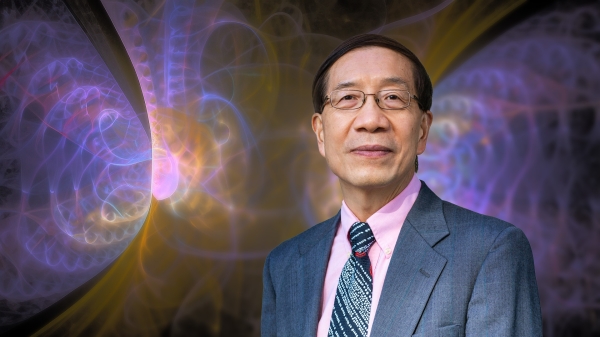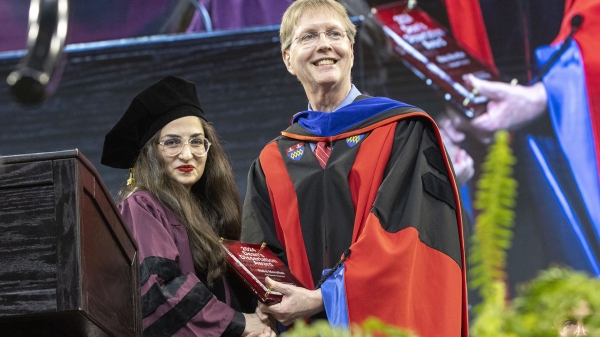ASU's Origins Project announces recipient of $10K Postdoctoral Lectureship Award

Aomawa Shields of the University of California-Los Angeles is the recipient of the 2016 Origins Project Postdoctoral Lectureship Award.
The Origins Project is pleased to announce Aomawa Shields of the University of California-Los Angeles is the recipient of the 2016 Origins Project Postdoctoral Lectureship Award.
This $10,000 award, the largest of its kind in the world, is offered to promising young scholar-scientists on the basis of their scholarly achievement and potential, as well as their skills in science communication. Part of the award is a week-long residency at Arizona State University where Shields will offer a series of departmental colloquia and a large public lecture in early April.
Shields’ research focuses on exploring the climate and potential habitability of extrasolar planets orbiting low-mass stars. Currently a National Science Foundation Astronomy and Astrophysics Postdoctoral Fellow, Shields is also a University of California President's Postdoctoral Fellow in the UCLA Department of Physics and Astronomy and the Harvard-Smithsonian Center for Astrophysics.
She is also a TED Fellow whose TED talk “How We’ll Find Life on Other Planets” has nearly 1 million views. In addition to her many scientific accomplishments, Shields is a classically trained actor with an Master of Fine Arts degree, a skill she uses to communicate her love of science.
“Dr. Shields rose to the top of a very impressive list of nominees,” said Origins Project director Lawrence Krauss. “Her cutting edge research in a topic of great current interest, combined with her clear communication skills, make her the ideal Origins Postdoctoral Award winner.”
“We are extremely happy she has accepted the award and are looking forward with anticipation to her visit, as should members of the ASU community and the public at large. Her presentations will be thrilling.”
For more information on the public lecture, please see: https://origins.asu.edu/events.
The Origins Project Postdoctoral Lectureship Award is one of many awards and scholarships that The Origins Project has available to students, researchers and scholars. For more information visit https://origins.asu.edu/awards-scholarships.
Written by Michelle Iwen, Origins Project
More Science and technology
Extreme HGTV: Students to learn how to design habitats for living, working in space
Architecture students at Arizona State University already learn how to design spaces for many kinds of environments, and now they…

Human brains teach AI new skills
Artificial intelligence, or AI, is rapidly advancing, but it hasn’t yet outpaced human intelligence. Our brains’ capacity for…

Doctoral students cruise into roles as computer engineering innovators
Raha Moraffah is grateful for her experiences as a doctoral student in the School of Computing and Augmented Intelligence, part…